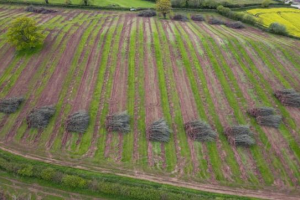RISING costs and uncertainty relating to Brexit are to blame for the sharp drop in output growth in January 2019, the Federation of Master Builders (FMB) has said in response to the latest Purchasing Managers’ Index data (PMI).
The Chartered Institute of Purchasing and Supply (CIPS) Construction Purchasing Manager’s Index incorporates survey results provided by construction firms throughout the country.
A reading above fifty suggests the construction sector is expanding, while a reading below fifty suggests the construction sector is in contraction.
The January 2019 PMI data revealed a fall from 52.8 in December to 50.6 in January, against the neutral reading of 50.0. January data pointed to a loss of momentum for the UK construction sector, with business activity growth grinding to its weakest for ten months.
All three categories of construction output recorded weaker trends than those reported in December.
Residential work was the strongest performing area, although the latest expansion was only modest and the slowest seen since March 2018. Civil engineering activity increased marginally, with the rate of growth much softer than December’s 19-month high.
Commercial work was the weakest performing area of construction output in January. Latest data indicated a decline in work on commercial construction projects for the first time in ten months. Anecdotal evidence suggested that Brexit-related anxiety and associated concerns about the domestic economic outlook continued to weigh on client demand.
New business growth eased to an eight-month low in January.
Construction firms widely commented on softer demand conditions and longer sales conversion times, reflecting a wait-and-see approach to spending by clients. Concerns about the near-term outlook for new projects resulted in more cautious staff hiring policies at the start of 2019. The latest survey pointed to the slowest rise in employment numbers since July 2016.
However, construction firms remain positive about the outlook for business activity in 2019. Around 41% of the survey panel anticipate a rise in output, while only 16% forecast a fall.
Optimism had, however, fallen month on month. Large-scale civil engineering projects were cited as a key source of optimism, while Brexit uncertainty was the most commonly cited concern.
Tim Moore, Economics Associate Director at IHS Markit, which compiles the survey: “UK construction growth shifted down a gear at the start of 2019, with weaker conditions signalled across all three main categories of activity.
“Commercial work declined for the first time in ten months as concerns about the domestic economic outlook continued to hold back activity.
“The latest survey also revealed a loss of momentum for house building and civil engineering, although these areas of the construction sector at least remained on a modest growth path.”
Duncan Brock, Group Director at the Chartered Institute of Procurement & Supply said: “The sector suffered a sharp drop in output growth in January, and the softest rise in purchasing volumes since September 2017, as Brexit continues to hamper progress and dampen client confidence.
“The biggest shock came in the form of job creation which has managed to suffer the slings and arrows of Brexit highs and lows with solid hiring since the referendum result. Employment rose at the slowest rate since July 2016 and with optimism also in short supply, the sector only needs a small nudge to tip it closer to a recession.”
Commenting on the results, Brian Berry Chief Executive of the FMB, said: “The latest PMI data show a slowdown in growth in construction with business activity growth easing to its weakest for ten months. The ongoing political uncertainty is partly to blame for this setback.
“Political uncertainty is the enemy of construction firms that rely on the spending power of homeowners to commission home improvement projects. The UK is set to leave the EU next month, and yet we are still none the wiser about what the future holds. Given these intense headwinds, it should not be surprising that the sector suffered such a sharp decline.”
Mr Berry continued: “Alongside the political uncertainty, the cost of doing business is also rising for construction firms up and down the country. Material prices have been rising steadily since the depreciation of sterling following the EU referendum.
“Looking ahead, material prices are expected to continue to cause a headache for the construction industry with recent research from the FMB showing that 87% of builders believe that material prices will rise in the next six months. What’s more the construction skills crisis means that key trades are extremely difficult to recruit and the upshot of this is rising wages in construction.
“Tradespeople know they can command higher salaries than they did previously as workers are scarce, and this means a squeeze in margins for firms. This will only worsen if the post-Brexit immigration system that the Government has planned goes ahead.
“If the sector isn’t able to draw upon crucial EU workers of all skill levels, who have so far served to mitigate this shortage, the slowdown of growth will continue.”
















